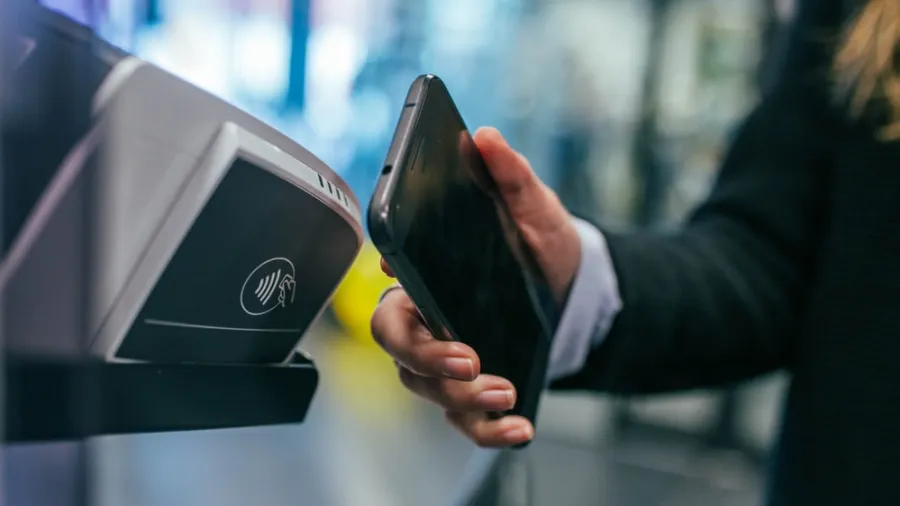
The Future is Now: 5 advanced payment methods to adopt in 2022
Consumers want to do away with the cards and just pay with a wave of a hand, study shows.
Imagine paying for fuel, meals, and other necessities by simply showing a hand and not having to remember passwords and pins to authorise online payments. This is how Singapore consumers envision the new era of e-commerce—and they might not need to wait for long for this future to arrive given that 94% of businesses are planning to adopt a new payment method in 2022, according to Visa.
But with several payment methods available in the ecosystem, which exactly should businesses adopt?
Based on the FIS Generation Pay 2021, there are five methods of paying which are gaining ground amongst Singaporean consumers: biometric authorisation (71%), smart commands (47%), in-car integration (52%), crypto-currencies (37%), and a hand-implanted microchip (25%).
Amongst these options, Kelvin Lam, regional general manager of a fintech firm, YouTrip, said the best to adopt in terms of cost, convenience, and safety would be biometric authorisation.
“[It is a] tried-and-tested payment method that promises both convenience and security,” Lam told Singapore Business Review, adding that biometric authorisation through fingerprint or facial verification is “inherently more secure than passwords and [two-factor authorisation] methods.”
This was echoed by fintech company Zwipe’s VP for Sales and Business Development, Claus Hansen, saying that the use of biometrics in the payment authentication process has the highest form of security available today.
“Unlike a PIN code, a fingerprint securely stored in the EMV chip as a template cannot be stolen,” Hansen told Singapore Business Review.
“Matching the fingerprint with the image already stored on the card, keeps the privacy of the cardholder intact and the safety and health of the consumer addressed whilst maintaining the convenience of contactless payment,” Hansen added.
It’s not only experts who are backing the safety of biometric authorisations, even consumers are saying so with nine in 10 already wanting their payment cards to be biometric in 2022, Zwipe’s study revealed.
The only concern of consumers (80%) about biometric payments is the risk of infection when paying in-store or touching POS machines.
Crypto for cross-border commerce
For businesses that serve not only the local market but across borders, as well, cryptocurrency would be a good option to consider, especially by small and medium enterprises.
Lam told Singapore Business Review that cryptocurrencies are “set to bring about faster and cheaper” cross-border transactions which he said are “expected to go up as companies increasingly operate in a distributed and borderless manner.”
“Just like B2C payments, companies will also expect to pay in the fastest and cheapest manner. Advancements in payment technologies such as blockchain is a step towards helping businesses save time and cost on cross-border payments,” Lam added.
In 2022, professional services company EY Global said it expects global cross-border payment flows to reach US$156t or $209.75t (1 SGD = 0.74 USD); of which $201.66t or US$150t will be from B2B transactions.
Whilst crypto will hugely benefit B2B transactions, Lam cautioned that this type of payment is still “a volatile space that requires a more sustainable framework and more consumer protections before it can be rolled out to the masses.”
Things to consider
When selecting which to adopt amongst the rising payment methods, Nagesh Devata, Regional SVP, GTM APAC at commerce technology company Payoneer, said businesses should take into consideration not only their global appeal but the preferences of the local markets they operate in.
“For example, Gen Z and Millennials are the digital generations and are particularly fond of mobile payments, and digital credit schemes, such as Buy-Now-Pay-Later. The silver generation has also been driven to contactless and digital payments, likely to reduce their health risk during the pandemic,” Devata told Singapore Business Review.
With consumers paying more attention to convenience, the Payoneer expert said it is also important to consider the complexity, cost, user experience, speed, and market reach of these innovative payments.
More than increased convenience, Lam said businesses should put importance on the safety of the payment methods they plan to adopt given that the increase in scams and cybercrimes has led to customers placing a higher emphasis on security when they pay.
In 2021, Microsoft reported that six in 10 Singaporean consumers have encountered scams, with Gen Zs being the most exposed to computer-related scam interactions.
Apart from security, Lam said businesses should assess the volatility of technology first before implementing new payment methods.
“Payments tech[nologies] that are still in its nascent stage such as cryptocurrency are highly volatile and pose a higher risk for consumers as a whole,” Lam said.
As consumers come first, Lam said businesses must also ensure that “ample consumer protection regulations” are put in place when incorporating new payment methods, and ensure that there is acceptance of these technologies.



![SBR 5 Lorem Ipsum News 2 [8 May]](https://cmg-qa.s3.ap-southeast-1.amazonaws.com/s3fs-public/styles/exclusive_featured_article/public/2025-05/a_hand_pointing_to_a_futuristic_technology_5b87c9d0e3_3.png.webp?itok=M3Hf-9XR)
![SBR 4 Lorem Ipsum [8 May Top Stories]](https://cmg-qa.s3.ap-southeast-1.amazonaws.com/s3fs-public/styles/exclusive_featured_article/public/2025-05/a_hand_pointing_to_a_futuristic_technology_5b87c9d0e3_2.png.webp?itok=2m5Wl0MX)


![Exclusive three SBR 12 Lorem Ipsum [8 May]](https://cmg-qa.s3.ap-southeast-1.amazonaws.com/s3fs-public/styles/exclusive_featured_article/public/2025-05/a_hand_pointing_to_a_futuristic_technology_5b87c9d0e3_11.png.webp?itok=8kn_UIfA)
![SBR 3 Lorem Ipsum [ Exclusive 2]](https://cmg-qa.s3.ap-southeast-1.amazonaws.com/s3fs-public/styles/exclusive_featured_article/public/2025-05/a_hand_pointing_to_a_futuristic_technology_5b87c9d0e3_1.png.webp?itok=YCyjLegJ)
![SBR 2 Lorem Ipsum [8 May]](https://cmg-qa.s3.ap-southeast-1.amazonaws.com/s3fs-public/styles/exclusive_featured_article/public/2025-05/a_hand_pointing_to_a_futuristic_technology_5b87c9d0e3_0.png.webp?itok=_cKD-29o)

![Video [Event News]](https://cmg-qa.s3.ap-southeast-1.amazonaws.com/s3fs-public/styles/event_news_featured_article/public/2025-05/screenshot-2025-05-08-at-4.58.53-pm_0.png.webp?itok=Kud35sMs)
![Event News SBR 9 Lorem Ipsum [8 may]](https://cmg-qa.s3.ap-southeast-1.amazonaws.com/s3fs-public/styles/event_news_thumbnail/public/2025-05/a_hand_pointing_to_a_futuristic_technology_5b87c9d0e3_8.png.webp?itok=DTh_dbYp)
![Event News SBR 9 Lorem Ipsum [8 May]](https://cmg-qa.s3.ap-southeast-1.amazonaws.com/s3fs-public/styles/event_news_thumbnail/public/2025-05/a_hand_pointing_to_a_futuristic_technology_5b87c9d0e3_7.png.webp?itok=vzDAzb6V)
![Event News SBR 8 Lorem Ipsum [8 May]](https://cmg-qa.s3.ap-southeast-1.amazonaws.com/s3fs-public/styles/event_news_thumbnail/public/2025-05/a_hand_pointing_to_a_futuristic_technology_5b87c9d0e3_6.png.webp?itok=jvHFc4P6)
![Video [Event News]](https://cmg-qa.s3.ap-southeast-1.amazonaws.com/s3fs-public/styles/video_thumbnail/public/2025-05/screenshot-2025-05-08-at-4.58.53-pm_0.png.webp?itok=yZnI0YBb)
![Video 1 SBR [8 May]](https://cmg-qa.s3.ap-southeast-1.amazonaws.com/s3fs-public/styles/video_thumbnail/public/2025-05/screenshot-2025-05-08-at-4.58.53-pm.png.webp?itok=9AAeRz_k)

 Advertise
Advertise

